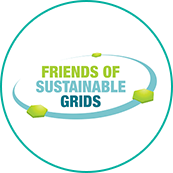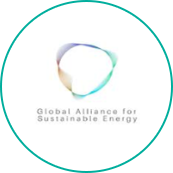TASK FORCE FOR INNOVATION IN ENERGY THROUGH SPACE
Addressing the key challenges faced by the energy sector through the use of space technology
SIGN UP TO THE ENERGY BULLETIN
The “Task Force for Innovation in Energy Through Space” (Energy Task Force) was launched in October 2022. Its main purpose is to leverage space applications in innovative, sustainable services that foster a clean, green energy ecosystem and support the growth of a sustainable green economy.
The Energy Task Force has a strong focus on implementation, with each member contributing its unique expertise and know-how. Members will participate in dedicated working groups that aim to develop and deliver innovative projects, trials of technologies and user-driven solutions to combat the challenges facing the energy sector. These projects will highlight the socioeconomic and environmental advantages for users and industry.
The overarching objective of the Energy Task Force is to generate both green and economic impacts by means of the framework mechanisms provided by ESA, with the support of the private sector. It represents an excellent opportunity for institutions, space agencies and industry to demonstrate the potential impact of space technologies on the energy sector.
The Energy Task Force will work on key energy topics in order to:
• Maintain an up-to-date overview of current green energy-related policies and activities in each thematic area.
• Identify and agree on short- and long-term priorities in each one, and the potential space added value.
• Implement initiatives in selected thematic areas to be undertaken with Energy Task Force partners.
MEMBERS OF THE ENERGY TASK FORCE
Members of the Energy Task Force are:
|
|
Aberdeen Renewable Energy Group (AREG) – an association of 250 members based in the UK |
|
|
DECOMMISSION – a not-for-profit, membership-based trade organisation based in the UK |
 |
DENA - German Energy Agency |
 |
DEWA - Dubai Electricity and Water Authority |
|
|
European Distribution System Operators for Smart Grids (E.DSO) – represents 41 electricity distribution system operators in 24 countries |
|
|
European Network of Transmission System Operators for Electricity (ENTSO-E) - represents 39 electricity transmission system operators (TSOs) from 35 countries across Europe |
|
|
Electric Power Research Institute (EPRI) – a not-for-profit organisation funded by the electricity industry |
 |
Friends of Sustainable Grids - international Brussels-based energy non-profit organisation |
|
|
Global Alliance for Sustainable Energy – an independent, multi-stakeholder alliance including members from the energy industry, civil society and academia |
|
|
India Energy Storage Alliance (IESA) – an industry alliance focused on the development of advanced energy storage, green hydrogen and e-mobility technologies |
|
|
Net Zero Technology Centre (NZTC) – a not-for-profit organisation funded by the UK and Scottish government |
Find out more about ESA's support for Energy











